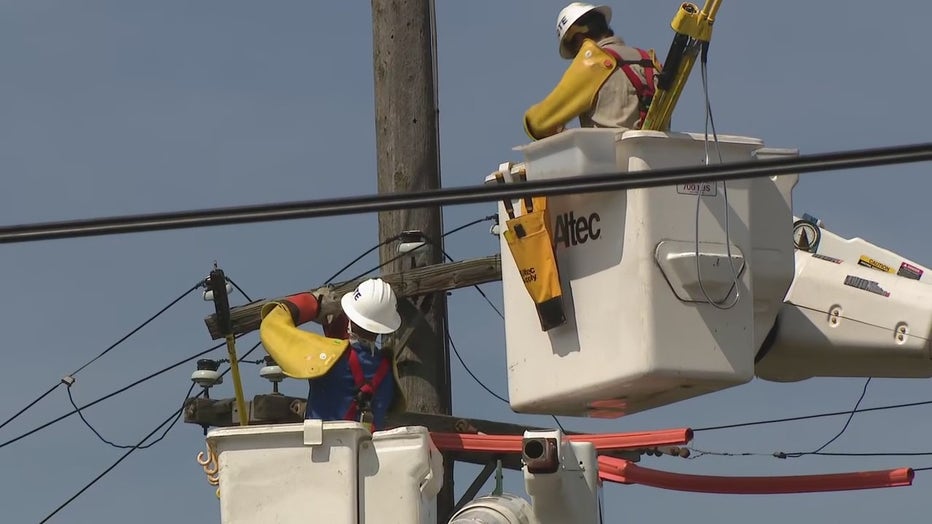Why DTE doesn't bury power lines in older neighborhoods

DTE says burying older electric lines is cost-prohibitive
With nearly a million people losing electricity over the past couple weeks due to severe weather, DTE is under more pressure to find a mroe permanent solution to outages - like burying the lines. But that's way too expensive, DTE says.
LIVONIA, Mich. (FOX 2) - Over the past couple of weeks, we've seen hundreds of thousands of our neighbors lose power - or have lost power ourselves. The likelihood of losing power in southeast Michigan is common - we've seen it for years - but things have changed with new construction.
New neighborhoods, like the one we visited in Livonia, is missing overhead power lines because they're buried. In fact, more than 1/3 of DTE's power grid is now underground. This lessens the risk of power outages caused by strong winds or snow and ice.
"All of our new construction in residential area is going to be underground. The challenge for DTE, and a lot of other utilities across the country, is to try to find ways to drive the cost down so you can convert existing overhead to underground," DTE VP Ryan Stowe said.
Christine Brow said she gets a real peace of mind, knowing that she's less likely to have a power outage
"We’ve lived here for about 12 years, and I don’t recall us losing power, and if we have it’s just been momentarily," Brow said.
The historic ice storm from two weeks ago didn't knock her power out and she said her old home, which had overhead lines, lost power at least twice a year.
"It’s definitely a disruption, especially when you have kids. Obviously, in the colder months, it gets very cold in the house if you don’t have heat," she said. "There’s been so many people I’ve spoken to, and they’ve been affected by the power outages. We really haven’t so I feel fortunate."
But DTE can't just convert old neighborhoods from overhead power lines to underground ones because it's just so expensive, according to Stowe, who is DTE's VP of Distribution Operations.
Related: How long can refrigerated food keep if the power goes out?
"Right now, those construction costs run as much as 5 to 6 times as high to convert from underground versus kind of an overhead rebuild," Stowe said.
He cautioned that the underground wires don't entirely shield neighborhoods from blackouts since those wires do connect to above ground substations.
MORE: What to do at dark traffic lights
The Michigan Public Service Commission, which oversees power distribution statewide, says it’s looking into converting overhead to underground.
"The Commission has asked utilities to provide cost and benefit information, including the costs of moving the lines underground, the maintenance cost differences between overhead and underground electric lines, and reliability and safety comparisons between the two," the MPSC said in a statement.
The statement also said pilot programs may be of use to test the reliability of underground wires in real world situations but there is no magic formula to improving the state's power grid.


